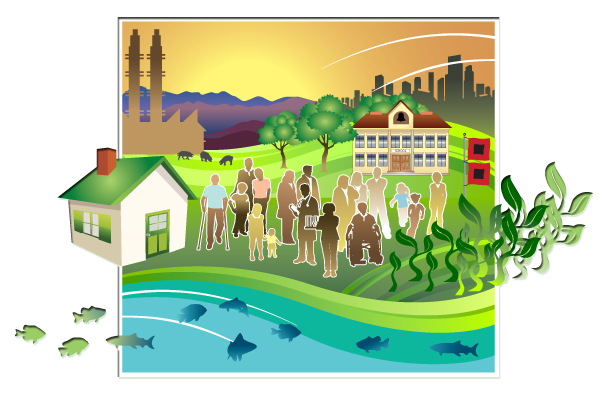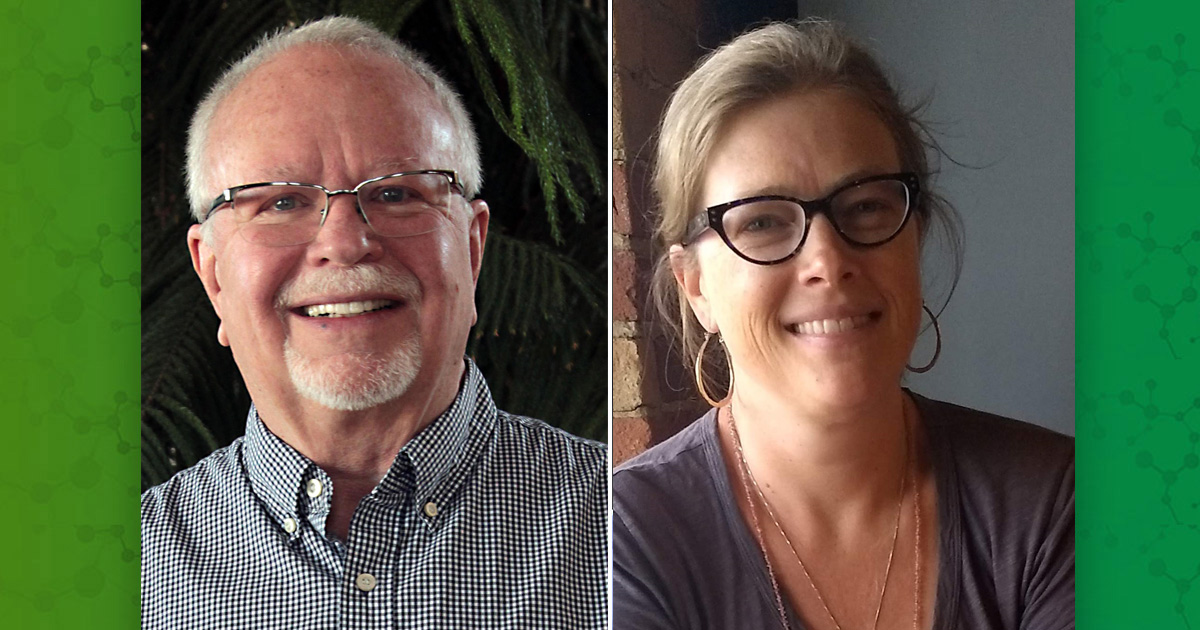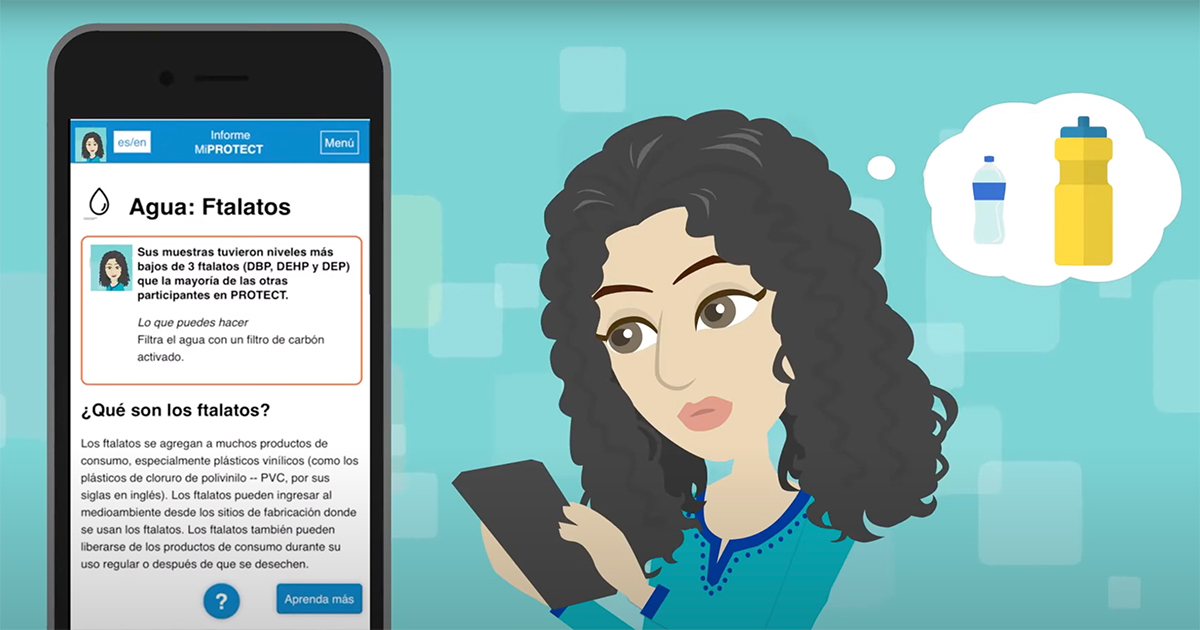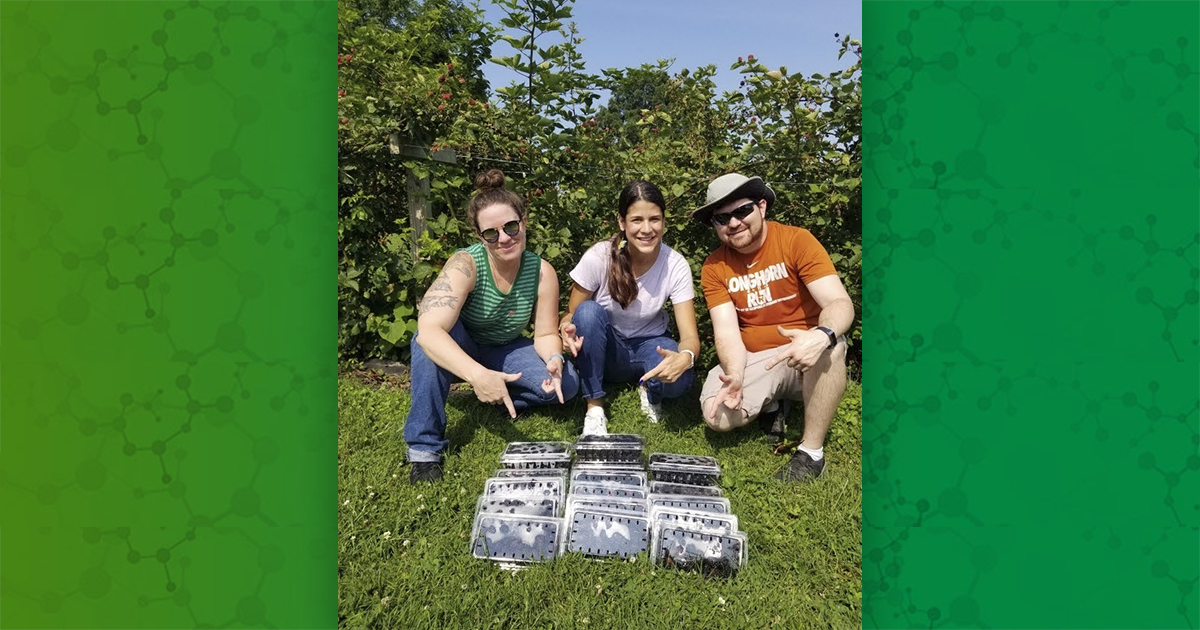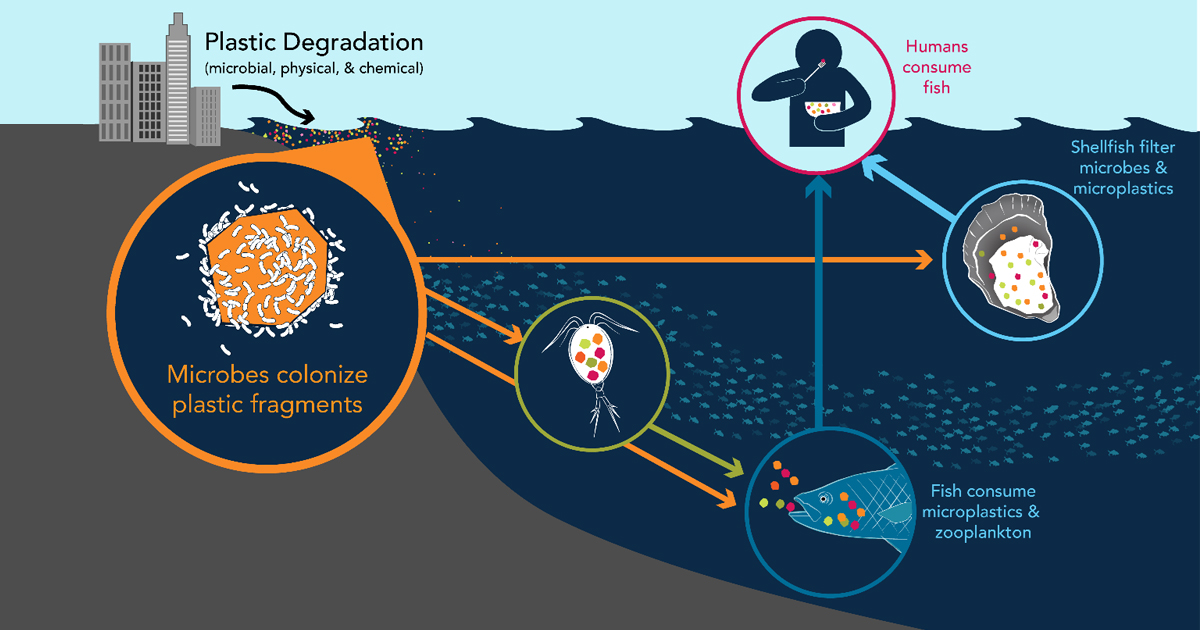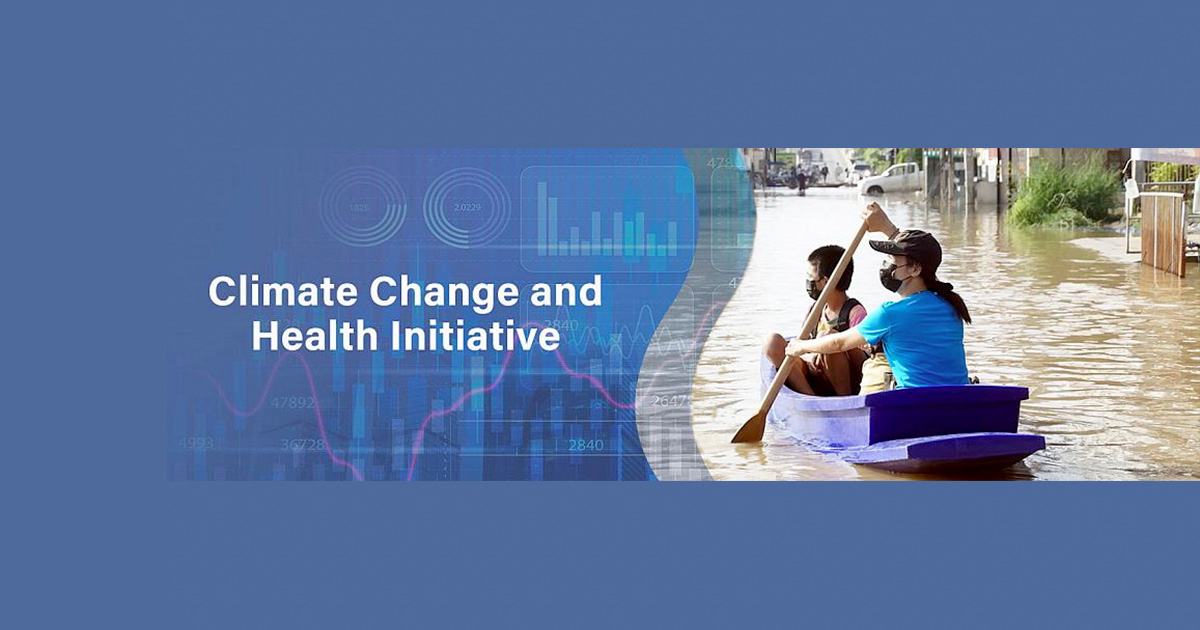Oral Histories Inform a New Environmental Health Literacy Framework
Learning from past environmental disasters can help inform the response to future ones. This is the premise of research conducted by a team from Emory University, the University of Michigan, Central Michigan University, and community partners. A December 2022 paper describes the team’s 2018 efforts to collect and analyze oral histories from people who experienced the aftermath of polybrominated biphenyl (PBB) contamination in Michigan in 1973. The contamination occurred when a manufacturer mistakenly distributed flame retardant instead of livestock feed components to Michigan farmers.
In addition to cattle and other farm animals being sickened by contaminated food, those who consumed meat, milk, and eggs from those animals were exposed to PBB. Once farmers and residents became aware of the contamination, they began to engage with state officials, the Michigan Farm Bureau, and others to understand the situation. Testing revealed residents had PBB in their bodies, and residents subsequently undertook efforts to understand the health effects of exposure.
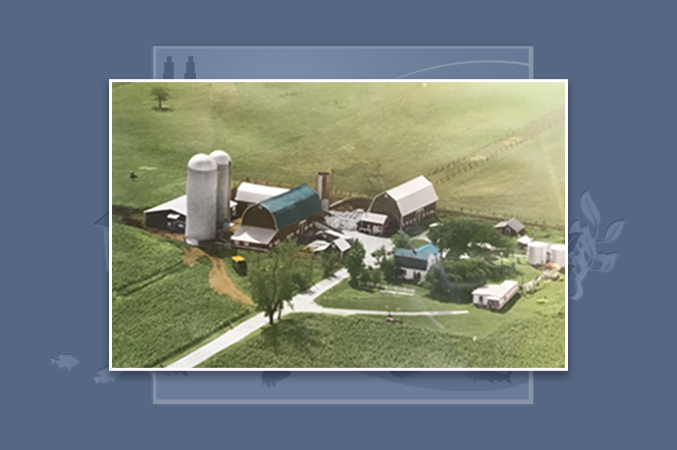
Photo of a Michigan PBB Registry participant’s farm in the late 1970s. (Photo courtesy of Bonnie Davis for the Michigan PBB Oral History Project)
“The oral histories we gathered formed a picture of how Michigan residents during and after the 1973 PBB contamination event sought to understand how they were affected by the exposure,” reflected Erin Lebow-Skelley, M.P.H., Community Engagement Manager of the HERCULES Exposome Research Center at the Emory University, Rollins School of Public Health, and one of the researchers on the team. “Our analysis shows the various ways that people sought environmental health knowledge, and what we can learn from these events to promote health literacy in disaster response.”
The team’s results also demonstrate the importance of a community’s skills in response to contamination. Although this event occurred 50 years ago, the researchers believe the experiences of those who were affected by the event can inform contemporary response to contamination events and other disasters. This community-academic team proposes a new framework for environmental health literacy that incorporates these findings and resonates with modern-day environmental response.
Gathering and Analyzing Oral History Data
Oral histories were collected from 2018-2019 in the Michigan PBB Registry, a collection of research into PBB in Michigan. The registry was founded in 1975 to conduct surveillance into PBB exposure among Michigan residents. The PBB Registry’s Leadership Team initiated the oral history project to better understand the experiences of those affected by the contamination. The Leadership Team consists of representatives from the PBB Citizens Advisory Board, Pine River Superfund Citizens Task Force, Mid-Michigan District Health Department, and Emory University researchers. They are tasked with maintaining the Michigan PBB Registry, conducting outreach on PBB with policymakers and state agencies, and engaging with the community.
Project staff recruited interviewees at community meetings, through prior participation in PBB research, and through recommendations from the Leadership Team. Researchers conducted 68 interviews with residents who represented diverse perspectives and included stakeholder groups such as farmers and their families, consumers of farm products, former employees of the chemical manufacturer, attorneys, and veterinarians.
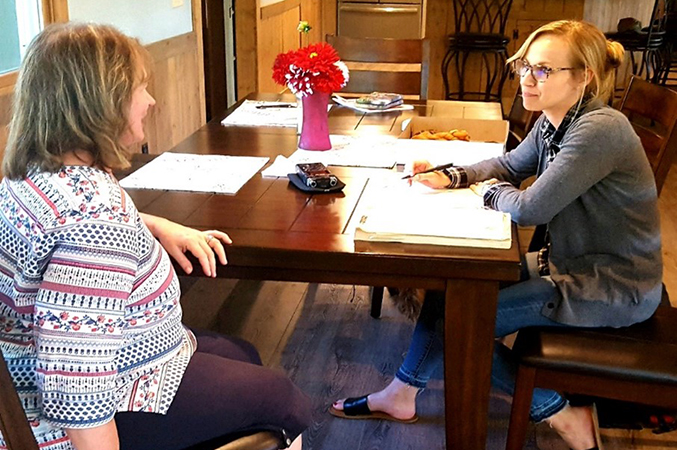
Fremion conducting an oral history interview. (Photo courtesy of Brittany Fremion)
After analyzing the interviews, researchers found that interviewees reflected on five central themes:
- Community leadership, knowledge, and skills in action.
- Contesting community knowledge.
- Human impacts of uncertainty.
- Inaction and loss of trust in institutions.
- Seeking information; building knowledge and understanding in the midst of uncertainty.
Researchers also found that the data reflected several cross-cutting themes, including uncertainty, inaction/action, and community skills and resources.
For example, an interviewee described an experience engaging with a farmer and prominent advocate, Rick Halbert, who was responsible for sounding the alarm on PBB contamination by taking samples from cows and sending them for laboratory testing. These comments represent the community leadership theme. The description related to the cross-cutting themes “community skills and resources” and “inaction/action.”
As quoted in the article, the interviewee stated, “Rick said ‘There is something wrong here’ … he sent [samples of cattle feed supplement] off to an independent lab and it came back and there was [PBB] in there.”
Oral history themes related to seeking knowledge are reflected in stories of how farmers began noticing sick farm animals and reported the issues to the Farm Bureau. The cause was unknown, but some farmers expressed concern about the feed. The Farm Bureau sided with the manufacturer, which had asserted it did not distribute contaminated products, and officials insisted farmers’ own practices were causing illness. Such stories were categorized as “contesting community knowledge.” The state conducted tests only after being notified of independent findings initiated by Rick Halbert. By that time, animal-based products had entered the food supply, resulting in exposure to PBB among an estimated 8 million Michigan residents.
Many oral histories also tell of residents who worried about their health, relating to the themes “human impacts of uncertainty,” and “loss of trust in institutions” due to lack of coordinated state response. Advocacy efforts encouraged the state to remove all contaminated food products from stores in 1975. Efforts also focused on understanding the health effects of PBB exposure, resulting in the founding of the Michigan PBB Registry.
“Many of the people that were interviewed were personally affected by the PBB contamination. There were economic, social, emotional, and health impacts on their families. Some have been involved with PBB research or engaged with PBB outreach efforts for many years. Some had not spoken about their feelings for a very long time. We felt it was important to capture their stories,” stated co-author Norm Keon, epidemiologist at the Mid-Michigan District Health Department and member of the PBB Leadership Team. “They provided a wealth of knowledge and emotions about their experiences that can be learned from.”

Hubert and Martha Zuiderveen, participants in the Michigan PBB Registry, who were interviewed for the Michigan PBB Oral History Project. Photos show the Zuiderveens in the 1960s and early 2000s. (Photos courtesy of the Zuiderveens for the Michigan PBB Oral History Project)
The Importance of Community Expertise in Disaster Response
Analyzing the oral histories helped researchers understand how individuals sought information on PBB contamination and how they acted to protect their health and well-being. This provides valuable insight into environmental health literacy and how those affected by contaminants contribute to community response.
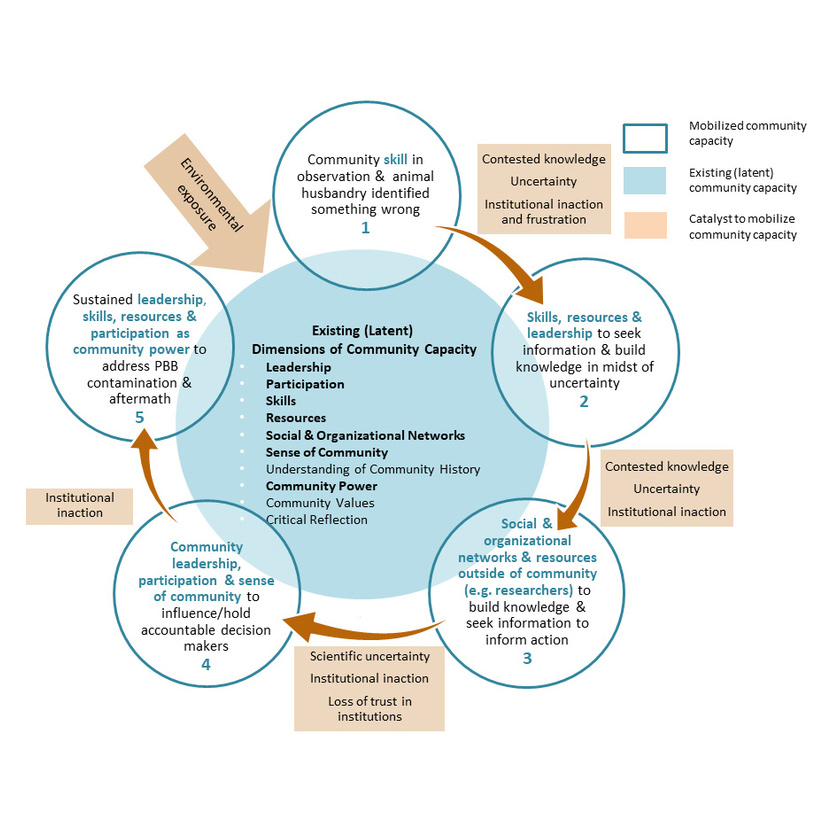
“In a contamination event such as this one, there may be a number of unknowns about the contaminant and how it affects human health,” stated Brittany Fremion, Ph.D., associate professor at Central Michigan University, and one of the team’s researchers. “These oral histories show that the community members’ expertise and knowledge, such as that of farmers who knew their cattle were sick before the issue was officially acknowledged by the state or researchers, should be taken into account as a central component of environmental health literacy.”
Researchers developed a conceptual framework by incorporating the themes from their oral history analysis, showing how the community’s skills grow through its leadership and actions to seek knowledge, overcome mistrust in institutions, and address contamination and health effects. Based on their findings, the community-academic partners propose that efforts to work with communities on environmental issues should not only prioritize scientific environmental health knowledge, but also consider the importance of a community’s knowledge and how outside institutions such as government or private entities may affect contamination responses.
“The oral histories show how the knowledge of Michigan community members was often ahead of the scientific research and state agency response, and this is reflected in the framework,” added Amy Schulz, professor at the University of Michigan School of Public Health and one of the team’s researchers. “We believe this framework can help researchers and those working with communities to see the importance of community capacity in shaping environmental health response.”
Commission Releases Comprehensive Report on Plastics and Human Health
Researchers who work in the fields of health care, ocean science, and social science wrote a report, released in March 2023, on plastics and human health. The report presents a comprehensive analysis of the hazards of plastics to all life on the planet. The report’s four key findings are:
The report estimates that plastics contribute to 4-5% of all greenhouse gas emissions and to hundreds of billions of dollars in health care costs. As a result of the findings, the authors recommend a cap on global plastic production as part of the Global Plastics Treaty currently being negotiated at the United Nations.
John Stegeman, Ph.D., an NIEHS-funded researcher at Woods Hole Oceanographic Institution who studies the effects of chemicals in aquatic animals, was one of the lead authors on a section in the report on oceans. The section includes information on the distribution and fate of plastics in the ocean; the effects of plastics in aquatic food webs, seafood, and marine life; ocean plastics and climate; and the potential implications of ocean plastic on human health. William Suk, Ph.D., M.P.H., another co-author of the report, is the former director of both the Center for Risk & Integrated Sciences, and the Superfund Research Program, as well as the former chief of the Hazardous Substances Research Branch in NIEHS’s Division of Extramural Research and Training.
The report was commissioned by the Minderoo Foundation, a philanthropic organization dedicated to addressing persistent issues such as eliminating plastic’s negative effects, the Centre Scientifique de Monaco, and the Prince Albert II of Monaco Foundation, with additional support from other organizations. To learn more about the report, read the Woods Hole press release.
Past PEPH Newsletters Now Archived
Have you wondered where old PEPH newsletters have gone? They have not been removed, but rather archived from the NIEHS website. Articles created more than 3 years ago are no longer actively maintained on the NIEHS website. Archived PEPH newsletters are available by accessing the archive and selecting any highlighted date on the calendar. From there, you can read past newsletters, such as the June 2019 feature on meetings to engage legislators and community members on Michigan PBB contamination and the October 2018 feature on how a portable sensor improves methods for detecting children's metal exposures.
New Protocols Help Standardize Data Collection for Social Determinants of Health
The National Institute on Minority Health and Health Disparities updated the PhenX Toolkit in December with new protocols for measuring individual and structural factors that shape health outcomes and behaviors. The PhenX Toolkit provides consensus measures for researchers conducting biomedical research. The updates include 15 new protocols for measuring social determinants of health (SDOH), updated race and ethnicity protocols based on recommendations from NIH’s All of Us initiative, and an updated neighborhood disadvantage protocol.
PhenX’s SDOH Toolkit was originally launched in 2020 to help researchers standardize data collection when examining the role of SDOH among populations that experience health disparities. The SDOH Toolkit includes a core collection, with measurement protocols to capture common data elements such as race and ethnicity, age, gender identity, and family income; an individual SDOH collection, which includes elements at the individual level such as health literacy, physical activity based on neighborhood environment, and food insecurity; and a structural SDOH collection, which includes elements such as air quality index, environmental justice, water access and sanitation, and neighborhood walking and biking environment.
PhenX’s protocols are browsable by research domains, such as social environments, infectious diseases, pregnancy, and psychiatric conditions, as well as by cross-cutting domains, such as environmental health, diseases, and health care. By using the toolkit’s protocols, researchers can help facilitate cross-study analysis.
Special Journal Issue Provides Insights on Effective Risk Communication During Chronic Exposures
The journal Risk Analysis published a special issue in winter 2022-2023 on risk communication during crises and chronic exposures. Articles include information on the importance in public health practice of communication, familiarity with stakeholders, respect for local knowledge and traditions, and listening to the community. The issue contains 19 essays based on interviews with risk communication professionals, some of them NIEHS grantees, who spoke about their experiences communicating with the government, public, private sector, and media about human or natural hazards. The issue also contains articles describing risk communication from the viewpoints of communicators and other stakeholders, timely risk communication issues, and basic technical information needed by risk communicators about health and safety. Consistent themes that arose from the interviews were the importance of basing risk communication on up-to-date, credible science; building trust; addressing audience needs; collaborating among governmental agencies, other organizations, and all affected parties; and being aware of social and environmental justice issues.
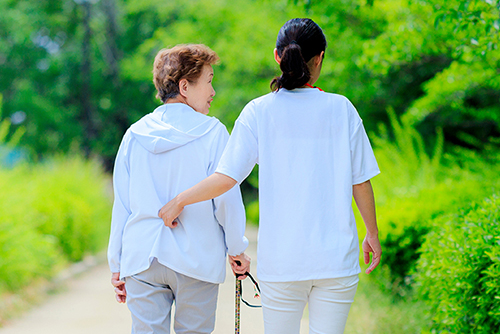
PEPH Environmental Health Chat Podcast Series
Spending Time in Nature May Slow Alzheimer’s, Parkinson’s Disease Progression
PEPH Environmental Health Chat Podcast Series
Spending Time in Nature May Slow Alzheimer’s, Parkinson’s Disease Progression
Alzheimer’s disease and Parkinson’s disease, the most common neurodegenerative diseases, affect millions of people and have no cure. However, research suggests that disease progression may be slowed in people who live in areas with more green and blue space. In this podcast, you’ll hear from Jochem Klompmaker, Ph.D., who examined the link between the natural environment and neurodegenerative disease risk. Klompmaker talks about the implications of his research for community planning.

PEPH Grantee Highlight
Linda McCauley, Ph.D., R.N.
As dean of the Nell Hodgson Woodruff School of Nursing at Emory University in Atlanta, Linda McCauley, Ph.D., R.N., works at the intersection of nursing, children’s health, and environmental and occupational health sciences. She also leads Emory’s Center for Children’s Health Assessment, Research Translation, and Combating Environmental Racism, which fosters partnerships between researchers and communities to decrease environmental exposures and translate scientific findings into action.
Funding Opportunities
Notice of Special Interest (NOSI): Climate Change and Health Administrative Supplements
As part of the NIH-wide Climate Change and Health Initiative, these supplements will enrich and expand the research community in climate change and health to include new researchers from multiple disciplines, both in the U.S. and in low- and middle-income countries globally. The supplements will support research that creates new knowledge to reduce or mitigate health threats attributable to climate change across the lifespan and build health resilience or develop adaptation mechanisms for individuals, communities, and nations around the world, especially among those at increased risk from, or disproportionately affected by, the impacts of climate change.
Deadline: May 8, 2023
Ruth L. Kirschstein National Research Service Award (NRSA) Institutional Research Training Grant (Parent T32)
Supports development of and/or enhances research training opportunities for individuals interested in careers in biomedical, behavioral or social sciences, clinical research, health services research, or in any other research discipline related to the NIH mission. The NIH Ruth L. Kirschstein National Research Service Award (NRSA) program helps ensure a diverse pool of highly trained scientists is available in appropriate scientific disciplines to address the nation's biomedical, behavioral, and clinical research needs. To accomplish this goal, NRSA training programs are designed to train individuals to conduct research and to prepare for research careers. More information about NRSA programs may be found at the Ruth L. Kirschstein National Research Service Award (NRSA) website.
Deadlines: May 25, 2023; September 25, 2023
Ruth L. Kirschstein National Research Service Award (NRSA) Short-Term Institutional Research Training Grant (Parent T35)
Provides short-term support for a period of at least 8, but no more than 12, weeks in a grant year for full-time training experiences under the supervision of experienced researchers. Supports training opportunities for predoctoral students interested in careers in biomedical, behavioral, or clinical research. This program is also intended to encourage training of graduate students in the physical or quantitative sciences to pursue research careers by short-term exposure to, and involvement in, the health-related sciences. The training should be of sufficient depth to enable the trainees, upon completion of the program, to have a thorough exposure to the principles underlying the conduct of biomedical research.
Deadline: May 25, 2023
CCRP Initiative: NIH Countermeasures Against Chemical Threats Translational Exploratory/Developmental Research Projects (R21 Clinical Trial Not Allowed)
Supports translational exploratory/developmental research that directly advances the discovery of novel treatment strategies, i.e., medical countermeasures, that address serious morbidity and mortality after acute exposure to highly toxic chemical threats. This funding opportunity supports translational research that includes, but is not limited to, preliminary efficacy and/or early preclinical development studies towards discovery and validation of novel molecular entities or biologics as candidate medical countermeasures. In addition to novel agents, new treatment strategies may involve repurposing already FDA-approved products or combinations of interventions based on established mechanisms of action.
Deadline: May 30, 2023
Time-Sensitive Research Opportunities in Environmental Health Sciences (R21 Clinical Trial Not Allowed)
Supports research in environmental health science in which an event has or will imminently occur that provides a limited window of opportunity to collect samples and data to support the assessment of exposures and human health impact. The goal of the program is to characterize initial exposures, collect human biological samples, or collect human health and exposure data in order to provide critical information to understand exposure-health outcome relationships, with the goal of providing data that will facilitate timely action to protect public health. The program also supports the use of innovative techniques (hazard identification, sensing and mitigation technologies) that are uniquely valuable for deployment at a time of disaster to inform our understanding of the human health impacts of the disaster.
Deadlines: April 3, 2023; June 1, 2023
Research to Action: Assessing and Addressing Community Exposures to Environmental Contaminants (R01 Clinical Trial Optional)
Encourages multidisciplinary projects to investigate the potential health risks of environmental exposures of concern to a community and to implement an environmental public health action plan based on research findings. Projects supported under this program are expected to employ community-engaged research methods to not only conduct research but also to seamlessly translate research findings into public health action. Check out the Research to Action Currently Funded Grantees webpage for a sense of the types of projects supported through this FOA.
Deadline: January 21, 2020
Strategies for Responsibly Reporting Back Environmental Health and Non-Genomic Research Results (R01 Clinical Trial Optional)
NIEHS, in partnership with the NIH Office of Science Policy, the All of Us Research Program, and the National Human Genome Research Institute, seeks applications that will identify, develop and/or adapt, as well as test strategies for responsibly reporting back environmental health, non-genomic research, and gene-environment interaction results to research participants and/or key partners (for example, health care professionals, IRBs, and policy makers). Applications are encouraged to address at least two of the specific themes of research interest, which include:
Applicants are strongly encouraged to partner with partner with one or more community-based organizations and/or an appropriate key partner group.
Deadline: June 15, 2023
SBIR E-Learning for Hazardous Materials (HAZMAT) and Emergency Response (R43/R44 Clinical Trial Not Allowed)
Supports the development of e-Learning health and safety training products from a variety of delivery methods to assist both students and instructors in the training and education process. Note that all products must be directly related to the health and safety training of workers exposed to hazardous materials. NIEHS encourages applicants to review the SBIR E-Learning for HAZMAT Program, to pursue partnerships and collaboration with NIEHS Worker Training Program awardees, and to design new technology-enhanced training methods or e-Learning products that can enhance the existing NIEHS-supported curricula and training programs while adhering to the Minimum Health and Safety Training Criteria: Guidance for Hazardous Waste Operations and Emergency Response (HAZWOPER) and HAZWOPER-Supporting Training.
Deadline: July 14, 2023
Addressing the Impact of Structural Racism and Discrimination on Minority Health and Health Disparities (R01 - Clinical Trial Optional)
Supports intervention research to address the impact of structural racism and discrimination on minority health and health disparities. Research projects must address structural racism and discrimination in one or more NIH-designated populations with health disparities in the U.S. and should address documented disparities in health outcomes. Applications are also expected to provide a conceptual model identifying hypothesized pathways between the structural racism and discrimination and health outcomes. NIEHS is interested in applications that are within scope of its 2018-2023 Strategic Plan, meet the criteria established in this FOA, and focus on intervention research that mitigates or prevents the impacts of environmental exposures on communities due to structural racism and discrimination. Applicants are strongly encouraged to utilize community-engaged research approaches that ensure equity, such as including community partners as part of the research team and having letters of support from community partners. Applications that demonstrate collaborative (i.e., community-academic partnerships) intervention approaches to address the negative health effects of structural racism and discrimination across multiple populations with environmental health disparities will be prioritized.
Deadlines: March 24, 2023; October 10, 2023




